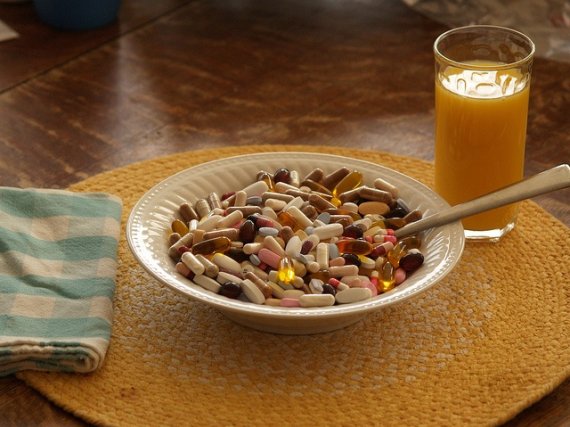Photo: Albert Straub
According to Sijtsma these results show that healthy nutrition continues to make a difference, even alongside the best treatment with, for instance, blood pressure-lowering drugs, cholesterol-reducing drugs, and anticoagulants. She hopes that this message will resonate in hospitals. ‘Doctors currently don’t often know much about nutrition and think that medication is enough.’
Sijtsma uses data from the 4307 people in the data she bases her study on who had already had a heart attack. These people were between 60 and 80 years old, and were tracked for ten years. The PhD candidate examined how much the participants ate of 24 food categories – from lean meat to ready meals. They got points for each category: 4 if they ate a lot of it, 3, 2, 1 or 0 if it was served up less frequently. This score was added up to a ‘health score’ for all the healthy products such as vegetables. The same was done for unhealthy products such as sugary drinks.
The big difference surprised me
Femke Sijtsma, PhD candidate at Human nutrition
Sijtsma subsequently compared the group with the highest health score to the least healthy participants. Of the people with the best eating habits 13 out of 100 passed away during the study. In the group with the least healthy diet, 24 out of 100 participants died. A considerable effect, particularly in nutritional science. ‘The big difference did surprise me’, says Sijtsma. She points out that this is a very specific group of people. ‘You can’t just extrapolate from these results to other groups.’
Actually every cardiac patient should already get dietary advice and be referred to a dietician, says Irene van Dis, policy officer with the Heart Foundation. It’s not known how many people actually get that advice and referral. An evaluation does show that eating habits are at least reviewed with 40 percent of patients.
Sijtsma’s research is not the first to study nutrition in cardiac patients. But much of that research happened in the time that modern medicines – especially statins that lower cholesterol – were not yet being prescribed for most patients, according to the researcher. The effect of nutrition alongside drugs had still not been sufficiently studied.
Sijtsma hopes that her results will be easy to translate to the public because she researched actual foods and not nutrients like saturated fats and salt.
Health Council: More vegetables and fruit, less meat

